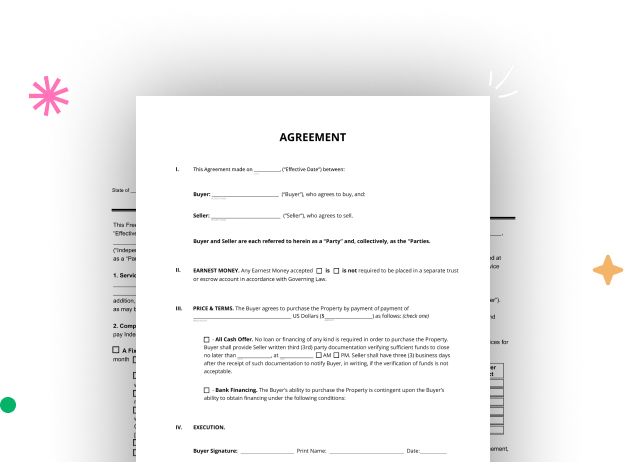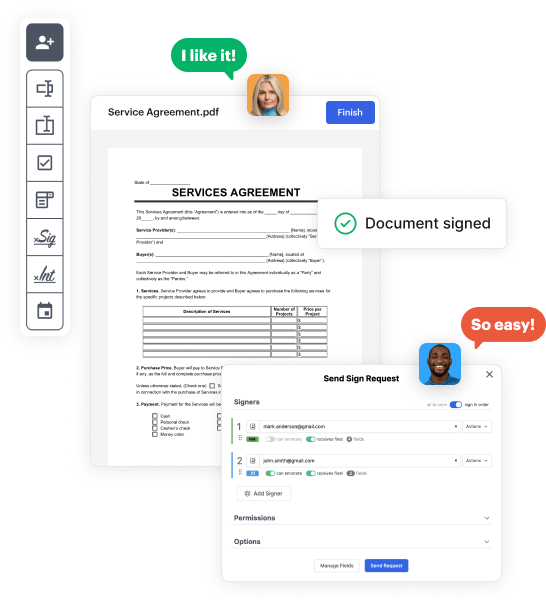

Start by accessing your DocHub account. Explore the advanced DocHub functionality free for 30 days.
Once logged in, head to the DocHub dashboard. This is where you'll create your forms and handle your document workflow.
Click on New Document and choose Create Blank Document to be taken to the form builder.
Use the DocHub toolset to insert and arrange form fields like text areas, signature boxes, images, and others to your document.
Add needed text, such as questions or instructions, using the text field to lead the users in your document.
Adjust the properties of each field, such as making them mandatory or arranging them according to the data you expect to collect. Designate recipients if applicable.
After you’ve managed to design the Real Estate Closing, make a final review of your document. Then, save the form within DocHub, transfer it to your chosen location, or distribute it via a link or email.